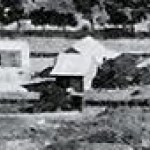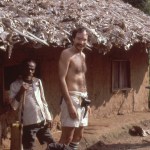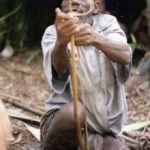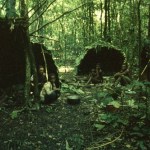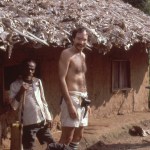Africa
Mahabouba*, age 14, was sold into a marriage as a second wife to a man 50 almost years her senior. Raped and beaten repeatedly, she ended up pregnant, finally succeeding in running away 7 months into her pregnancy. Fleeing to the nearby town, she found that the people there threatened to return her to her husband, so she ran back to her native village in Ethiopia. However, her immediate family no longer lived there. An uncle eventually took pity on her and provided her with housing. When Mahabouba went into labor, lacking resources, she tried to deliver her baby herself. Her pelvis was still…
August, 1976. A new infection was causing panic in Zaire. Hospitals became death zones, as both patients and medical staff succumbed to the disease. Reports of nightmarish symptoms trickled in to scientists in Europe and the US, who sent investigators to determine the cause and stem the epidemic. Concurrently, they would find out, the same thing was happening hundreds of miles to the north in Sudan. In all, 284 would be infected in that country, and another 358 in Zaire--over 600 cases (and almost 500 deaths) due to a mysterious new disease in just a few months' time.
The new agent was Ebola…
In late November, 1899, a British military unit which included an embedded reporter was ambushed by an Afrikaner unit in what is now Natal Province, South Africa. This was during the Anglo-Boer war, which was to be the largest military adventure to date in the history of the United Kingdom. The British had been traveling in an armored battle train, a kind of tank-train hybrid that was being used in that war mostly with poor results. The train was partly derailed, and the British were under fire, their only hope to make a break for it, or to hunker down and wait for reinforcements which may…
Left: Efe (Pygmy) man. Right: White guy.
Some of the people who live in the rain forest of Central Africa are known widely as "Pgymies." That word...Pygmy...is considered problematic for a few different reasons. It refers to a person's physical appearance, because it means "small." The word is sometimes used in biology to refer to the smaller species among a group of closely related species, as in "Pygmy Hippopotamus" or "Pygmy Chimp." In English and probably some other languages, the term is used in a derogatory way to refer to someone who is perceived as not very smart, as in "Pygmy…
Pastoralism is the practice of keeping and herding animals such as cattle, goats and sheep, and using the products they produce, including meat, hide, bone, horn and of course, dairy. In the old days, armchair archaeologists thought that pastoralism would have been a phase of cultural adaptation following hunting and gathering and preceding horticulture (the growing of plant crops). Why did they think that? No really good reason, just a guess. However, over time evidence came along and ideas where altered and minds were changed and now it is generally thought that in Europe and West Asia…
As part of a fundraiser for the Secular Student alliance, I'm writing a novel as we speak. I'll post one chapter per hour (approximately) until it is done. I started several hours ago, so there are as of this writing seven chapters (plus front matter) up for you to read.
Please visit "Sungudogo: A Novel" .... Start Here.
A compendium of selected posts written about the Ituri Forest, the Efe Pygmies, and other folks and other things in the region:
In the matter of insects:
No Place to Sit Down
The reason the Efe won't normally kill an insect ...
"Excuse me, there's some food in my bugs!"
Day of the locust. Yum!
"We Live In Little Houses Made of Beans"
The curious world of bugs
Life in the forest
How to kill a monkey
How to carry your monkey home once you've killed it
A story of my friend Kobou
Camp life
Cultural Wanderings
A look at some traditional medicine, cross culturally
Total eclipse of the sun and…
Acupuncture is the ancient East Asian practice of poking people with needles in specific places and in specific ways in order to produce any one of a very wide range of results that could generally be classified as medicinal or health related. I don't know much about it, but Wikipedia tells us:
Its general theory is based on the premise that bodily functions are regulated by the flow of an energy-like entity called qi. Acupuncture aims to correct imbalances in the flow of qi by stimulation of anatomical locations on or under the skin called acupuncture points, most of which are connected by…
Wildlife of Southern Africa , by Martin Withers and David Hosking, is new (August 2011) and good. If you are planning a trip to South Africa, Namibia, Botswana or anywhere nearby, or if you live there and like to go to the bush sometimes, consider it.
This is a pocket guide, it is small, has good photographs, is inexpensive, and accurate.
In my opinion, if you are travelling around Africa looking at wildlife, you will need a set of more specialized guides (which I've discussed at length elsewhere on this blog, see below), but this is a good extra to carry along or to have handy, depending…
I remember my first solar eclipse. I was a kid, and it was the one Carlie Simon sang about, in March 1970.
(The eclipse reference is just past three minutes. Some other time we can argue over whether or not Carlie, singing in this video on Martha's Vineyard, was referring to the March 1970 eclipse or the July 1972 eclipse, but I'm sure it was the former, because that's the one everybody got all excited about.)
I was such a geek that I actually missed the eclipse because I was busy collecting data. There was a phone number you could call and a lady's voice would give you the time and…
As an archaeologist, my expertise in the cognate field of geology includes fluvial processes, so I know something about floods. And I've experienced plenty of floods working in the Hudson and Mohawk river valleys ... now that I think of it, I've got quite a few good flood stories. But the most significant experience I've had with flooding happened in about a foot of water.
It was in the Congo, at Senga, a location I've written about before. Our camp was on one side of a wash right where it entered the Semliki River, and the excavation was on the other side of the wash, but since the…
Dr. Wangari Maathai died on Sunday at 71, of ovarian cancer. It is interesting to me that so many of the obituaries get her work wrong - consider what the New York Times says:
Dr. Maathai, one of the most widely respected women on the continent, wore many hats -- environmentalist, feminist, politician, professor, rabble-rouser, human rights advocate and head of the Green Belt Movement, which she founded in 1977. Its mission was to plant trees across Kenya to fight erosion and to create firewood for fuel and jobs for women.
It is a small error, but an important one. Maathai did not wear…
Continuing with the theme of eating insects ...
The people of the eastern Congo plant African rice around June so that it will grow through the wettest part of the wet season, and then they harvest it in the "dry season" which starts about mid or late November. That is around the same time that a "locust" (actually a katydid of some sort) emerges in the grasslands to the north, in the Central African Republican and the Sudan, to spread across the region. And eat rice.
It is rather annoying to have locust descend on your crops. Some years it is not too bad, some years it is bad enough to…
Speaking of people eating insects ... as we were ... I do have this fun story from the Ituri Forest.
One day something funny happened. I was traveling in the most remote part of Central Africa, several days walk from any place you could possibly drive a car, visiting uncharted villages mainly occupied by people who had moved into the deep forest because they were in trouble with the "law" in some way (usually for perfectly good reasons in this lawless country). I was traveling with a Lese Villager and his sister, who was hired as our cook, and three Efe Pygmy men. We visited a village that…
I have written before of insects in the Ituri Forest. (Oh, and here too.) When it comes up that I've spent time there, certain questions often come up, and one of them is: "Did you eat bugs."
Every one has seen those National Geographic specials where some natives somewhere are eating insects, and of course, Westerners who think they generally don't eat insects are fascinated with the idea. Of course, Westerners eat a lot more insects than they think. You should really consider any processed food you eat that started out as a plant crop to be part insect. If what you are eating is made…
that has wandered into their camp if they don't know anything about it a priori is ... according to what they told me when that happened once ... is ...
Many, though certainly not all, insects are linked to important things in life. This is true of many things that are not insects as well. For instance, one does not walk to the right of a young male Canarium tree in the afternoon, because he who shall not be named could be sitting in the tree, and then you're screwed. Or, one should not handle the fetus of an antelope if any females in your family are planning on getting pregnant soon…
It has been said that our most distant primate ancestors, the mammal that gave rise to early primates but itself wasn't quite a primate, was most like the Asian tree shrew, which is neither a shrew nor does it live in trees. This is, of course, untrue. When the average American sees a shrew native to the new world scurrying past, he or she usually thinks of it as a form of mouse. Which it isn't. (In fact, there are no "mice" native to the new world, but even if we give our hypothetical observer the concept of "rodent" as in "eeek, a rodent" the shrew is not that either.) If you spend any…
An Efe forest camp is usually dark and depending on the time of day, dripping from current or recent rain. The Efe live in dome shaped huts which may be more or less complete. A half dome might be a hut that was built quickly, or it might be a hut that was built more openly because it has been hot or it might be only a half dome to allow easier access in and out of the hut by children or individuals with injury or infirmity. A fully domed hut, with a small opening, keeps in more smoke (a fire is often kept in the hut) but it also keeps in the heat and keeps out the rain. So a rainy…
When I first arrived in the Ituri Forest I was shown a camp a group of Efe Pygmies all typically lived in, and told "everyone lives here but the old man and his wife ... he's a bit contentious and there was an argument." Having read all the literature written in English about Pygmies, I was aware of the fact that these foraging people, who moved frequently -- perhaps ten times a year or more -- would often change the composition of their residence groups to reflect forming and breaking alliances among people who often, but not always, lived together. After hanging out in the camp, which was…
Thirty years ago yesterday, "the CDC's Morbidity and Mortality Weekly Report (MMR) published a report of five young men with Pneumocystis carinii pneumonia who were treated at three different hospitals in Los Angeles, California." (see This Blog Post for details). Morbidity and Mortality Weekly is a really fun journal to read. It contains the latest reports of, well, death and serious illness as a means of disseminating information in a way that will allow quick response. So, if there are suddenly a bunch of cases of some disease scattered across the country, this kind of reporting may…
